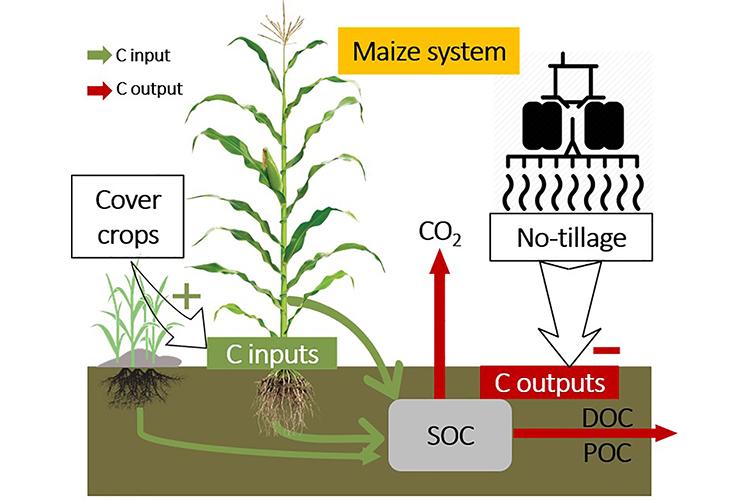Study: cover crops, no-till could slow climate change

Published: August 8, 2020
Category: The Organic & Non-GMO Report Newsletter, Regenerative Agriculture
Cover crops combined with no-tillage systems can increase soil organic carbon, which could help slow climate change on farms, according to a recent study by University of Kentucky College of Agriculture, Food and Environment scientists.
The project was conducted at UK’s Blevins research plots. Located at UK’s Spindletop Research Farm in Lexington, the plots are only one of a few sites in the world that have been continuously in no-till agriculture for more than 50 years. Each year, the plots host no-till corn research projects, and in the winter, they receive a cover crop of cereal rye.
Using historical field data, field observations and agricultural modeling, UK researchers were able to explore the long-term effects of cover crops and no-till on the site and predict how those management practices may continue to benefit similar agroecosystems in the future.

The model analyzed yield and field data collected from the Blevins plots from 1970-2018. It showed that no-till and cover crops work together to simultaneously slow down soil carbon decomposition and increase carbon inputs into the soil. While cover crops combined with no-tillage led to carbon gains in the topsoil compared to a system that uses conventional tillage and cover crops, no-till only minorly contributed to the carbon gains. The model data echoed field observations.
“Our research shows that soil carbon sequestration is highly connected to biomass carbon inputs from both the cover crop and corn residues,” said Wei Ren, UK assistant professor who led the project. “Elevated carbon dioxide and warming effects would promote the growth of the cover crop to increase soil carbon gains under future climate change.”
The model predicts that the benefits from cover crops will only increase with time as elevated carbon dioxide levels increase cover crop biomass yields.
The researchers’ findings were published in the academic journal Agricultural and Forest Meteorology and are available online at https://doi.org/10.1016/j.agrformet.2020.108090.
Source: University of Kentucky
To view source article, visit: https://news.ca.uky.edu/article/uk-research-cover-crops-no-till-could-slow-climate-change




